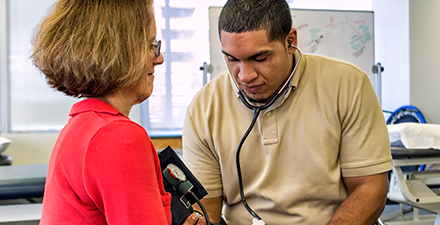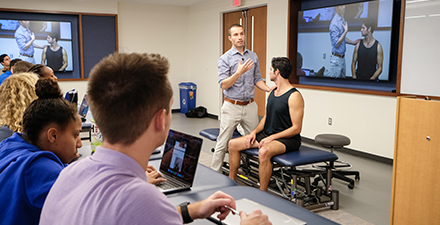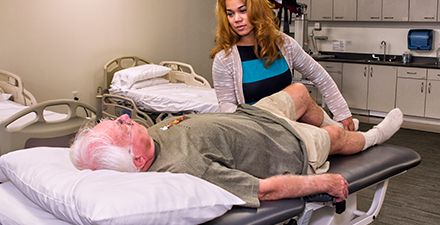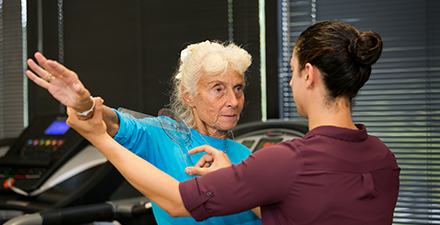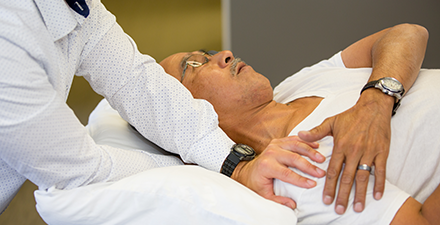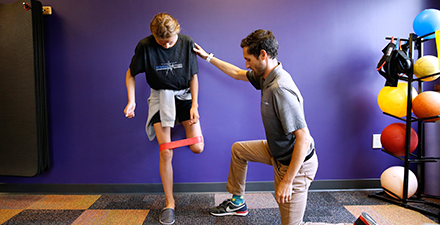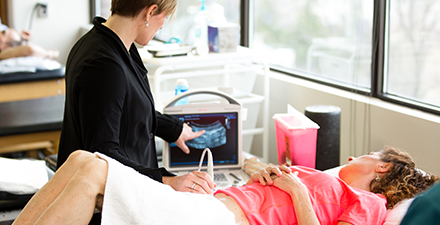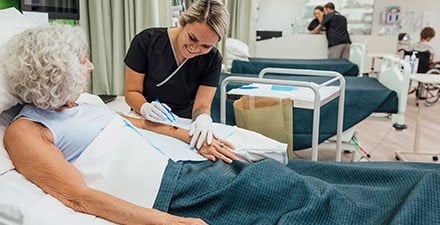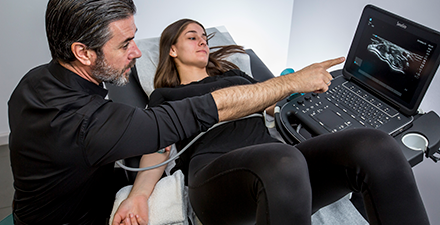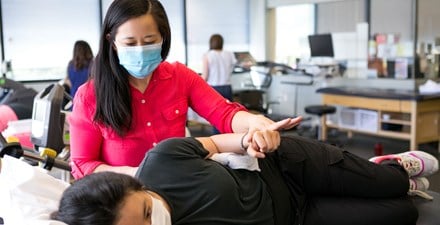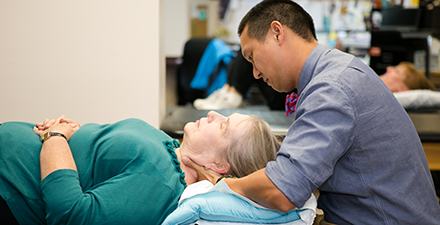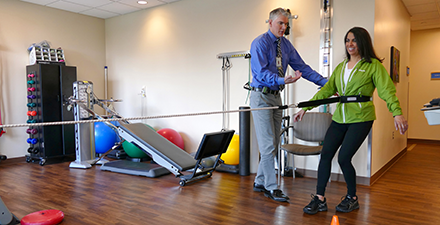By using this site, you are consenting to our use of cookies. To find out more visit our privacy policy.
Residency Practice Areas
ABPTRFE currently accredits physical therapist residency programs in Acute Care, Cardiovascular & Pulmonary, Clinical Electrophysiology, Faculty, Geriatrics, Neurology, Oncology, Orthopaedics, Pediatrics, Sports, Women's Health, and Wound Management.
Fellowship Practice Areas
ABPTRFE currently accredits physical therapist fellowship programs in Critical Care, Hand Therapy, Higher Education Leadership, Neonatology, Neurologic Movement Disorders, Orthopaedic Manual Physical Therapy, Performing Arts, Spine, Sports Division 1, and Upper Extremity Athlete.
Establishing A New Practice Area
ABPTRFE has outlined procedures to establish a new area of physical therapist residency or fellowship practice.
Accreditation Timeline and Overview
ABPTRFE meets three times annually to make initial accreditation decisions in January, May, and September based on the initial accreditation tracks (e.g., Track One, Track Two, Track Three), as outlined within the ABPTRFE Processes and Procedures.
Developing programs are encouraged to begin by reviewing ABPTRFE's Initial Accreditation Timelines and consult with ABPTRFE staff for planning purposes.
Interested programs should begin preparing for the application process by reviewing the Self-Evaluation Report and Exhibits a minimum of nine to 12 months prior to submitting the Application for Candidacy.
- May 2023 Editorial Changes to Quality Standards
- Quality Standards 2023 Clinical
- Quality Standards 2023 Non-Clinical
- ABPTRFE Processes and Procedures
- Accreditation Fees
ABPTRFE Places a Stay on Standards 3.1 and 3.6 in the 2023 Quality Standards for Clinical and Non-Clinical Physical Therapist Residency and Fellowship Programs
The American Board of Physical Therapy Residency and Fellowship Education has voted to place a stay on Standards 3.1 and 3.6 in the 2023 Quality Standards for Clinical and Non-Clinical Physical Therapist Residency and Fellowship Programs effective immediately. Programs preparing self-evaluation reports, candidacy applications, or other accreditation-related submissions should not provide a response to the diversity, equity, and inclusion elements within these standards, as this information will not be considered in an accreditation review or decision.
This decision reflects recent federal and state developments relating to accreditation requirements that include elements relating to diversity, equity, and inclusion in education programs. ABPTRFE stands behind the lawfulness and appropriateness of its accreditation standards. However, ABPTRFE also recognizes that recently enacted and pending legislation in several states and federal guidance to accreditors and institutions of higher education may affect the ability of accredited programs to fully meet the expectations of Standards 3.1 and 3.6. In alignment with its mission to assure quality while respecting the different legal contexts in which accredited programs operate, ABPTRFE took this action to:
- Eliminate any real or perceived conflict between the requirements of these standards and evolving law; and
- Ensure a consistent and equitable set of accreditation expectations for all residency and fellowship education programs, regardless of their geographic or legislative environment.
The board will engage in the standards review process to evaluate the future status of these standards in accordance with ABPTRFE’s Processes and Procedures (Policy 15.0). This review process is also a recognized best-practice standard of specialized and professional accreditors, as outlined by the U.S. Department of Education and Council for Higher Education Accreditation. This review will be guided by ABPTRFE’s commitment to public protection, educational quality, and compliance with applicable law.
ABPTRFE remains committed to supporting high-quality physical therapy education while navigating a dynamic legal and policy landscape. For additional information or questions, please contact Kendra Harrington, Director, Residency and Fellowship Education and Accreditation at kendraharrington@apta.org.
Clinical Program Self-Evaluation Report
Non-Clinical Program Self-Evaluation Report
- Exhibit 2: Mission and Goals Chart
- Exhibit 2: Guidance and Examples
- Exhibit 3: Assessment Table
- Exhibit 3: Guidance and Examples
- ABPTRFE Mentoring Observation Evaluation
- Annual Continuous Improvement Report
- Substantive Changes
- Non-Substantive Changes
- Site Visit Guidelines
- Residency/Fellowship Education HUB
- Courses
- Tutorials
- Recorded Webinars
- ABPTRFE 2025 Webinar Series
Please join ABPTRFE for the following webinars scheduled in 2025. All webinars will be recorded and posted to the ABPTRFE website for those who are unable to attend.
- Aug. 14, 7-8 p.m. ET
Guest Speaker: Call for Action: Excellence and Value in Residency Education
ABPTRFE is hosting guest speakers Raine Osborne, PT, DPT, EdD and Matthew Briggs, PT, DPT, ATC, PhD who will share the results from a nationwide study and call to action. The presentation concludes with a Q&A session.
Register in advance for this webinar.
After registering, you will receive a confirmation email containing information about joining the webinar.
Please email questions to ABPTRFE in advance of the webinar.
- Nov. 13, 1-2 p.m. ET
Curriculum Mapping
ABPTRFE is hosting a presentation on tips and tools on curriculum development and mapping to align instruction with desired program goals and outcomes. A review of tools and resources for curriculum mapping will be providing to facilitate programs thoroughly documenting what is taught and when based on requirements outlined with the specialty/subspecialty DRP and DFP. The presentation concludes with a Q&A session.
Register in advance for this webinar.
After registering, you will receive a confirmation email containing information about joining the webinar.
Please email questions to ABPTRFE in advance of the webinar.
- Aug. 14, 7-8 p.m. ET
Descriptions of Residency Practice
DRPs are used by programs to reduced unwarranted curriculum variability; provide residents minimum consistency in learning experiences for that area of practice; and streamline the accreditation process for reporting.
Descriptions of Fellowship Practice
DFPs are used to reduce unwarranted curriculum variability; provide fellows-in-training minimum consistency in learning experiences for that area of practice; and streamline the accreditation process for reporting
